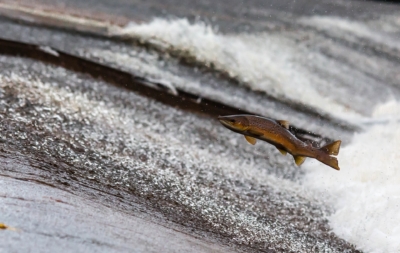
White spot disease (Ich) is a protozoan parasite that affects freshwater fish. Most fish in the wild carry some parasites which have little effect on the hosts. In times of stress, however, resistance can be low, making them vulnerable to attacks.
Symptoms
The most common symptom is the appearance of white spots on the fins, body and eyes of a fish. In the early stages of infection, fish may be seen scratching themselves on ornaments, rocks or gravel. In the later stages, fish are often seen hanging near power filter outlets, pumping their gills in an attempt to get oxygen.
Life Cycle
Ick parasites burrow just under the skin of fish, causing the characteristic white spot stage. At maturity, the adult parasite detaches from the fish, swims freely for about six hours and settles to the bottom of the aquarium. The parasite then secretes a protective membrane to create a cyst. The cyst undergoes a number of divisions, producing 1000 or more offspring which emerge is search of a host.
Treatment
Ick parasites can only be killed when they are free-swimming. Medications do not kill parasites that are attached or encysted to a fish. Since not all the parasites hatch at the same time, it is necessary to treat a pond for several days to ensure infestation control. When one fish gets Ick, all the fish in a pond may become infected. If this occurs, quarantine the infected fish and begin treatment immediately with liquid Melafix. Adding Pond Salt from Aquarium Pharmaceuticals to a pond will reduce stress on the fish, speed up recovery and improve gill function.